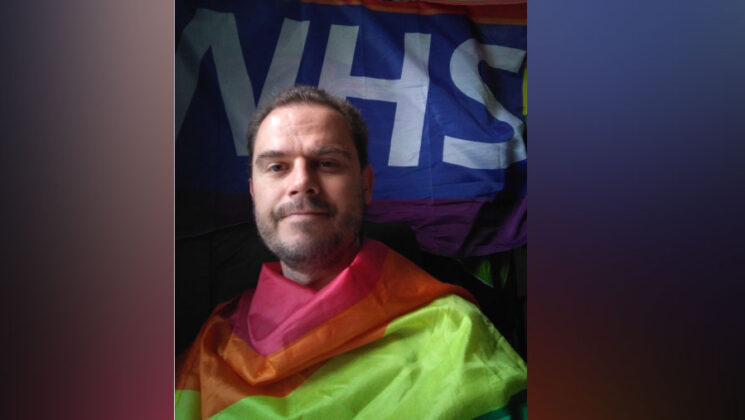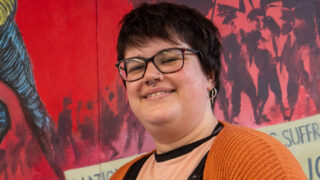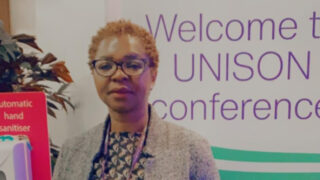We’re marking LGBT+ History Month by getting some of our activists to take the Five Questions challenge.
Next up is Peter Oates, co-chair of the Eastern region LGBT+ committee and a health worker.
Here’s what he had to say.
Who are you?
I am Peter, a UNISON activist in the Eastern region
As a member of the LGBT+ community I know isolation and poor health can be statistically more likely for minorities, and the self organised groups within UNISON help in reducing isolation, but also harnessing the insight and activism that comes from those groups
Why is LGBT+ History Month important to you?
Minorities are being vilified by the government and parts of the media more than ever, with a specific focus on attacking the rights of transgender and non binary members and communities.
I am ashamed of those attacks on rights, and will proudly stand with LGBT+ members across the UK to challenge the phobias and fears that are being used to harm people, our colleagues, our family, our friends
What’s your proudest achievement in UNISON?
Starting the 2023 health conference by moving the anti-racism motion from Eastern region, despite it being so anxiety filled — there were hundreds of people I usually sit with and learn from looking at me.
Intersectional working will help unite members and protect people from some of the harm that is done through institutional racism, transphobia and all other discrimination
Who’s your inspiration/role model?
My fellow Eastern region activists, in the health sector, the self-organised group activists, staff supporting amazing outcomes from hard fights, all of them.
I will always be a UNISON activist, in part to prevent further harm I witness as a representative, but also for positive changes to government and public-sector terms and conditions.
Why did you get involved in UNISON?
Because of the poor way staff were treated in the NHS, often with mental health backgrounds and/or because they raised concerns about how things were not OK within teams.
I became more active the more I saw those staff doing amazing work, supporting teams in clinical, admin or supporting roles brilliantly, while they were ignored, harassed and made to feel wrong for asking valid questions.






